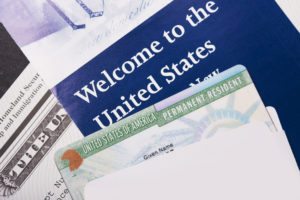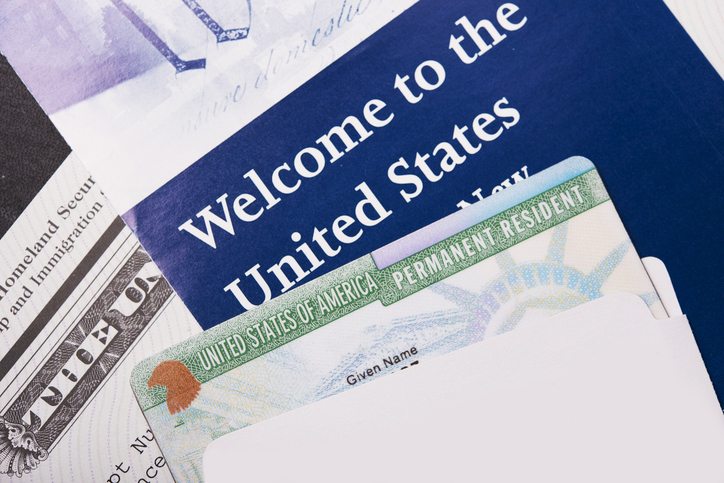 In 2015, Alecia Pennington launched a viral campaign to prove her citizenship. Pennington refers to herself as a born and raised Texan, but unfortunately, her parents never acquired a birth certificate or other accepted legal documents that prove United States citizenship. Since she had no way to prove her identity, Pennington could not find a job, attend college, or receive a driver’s license.
In 2015, Alecia Pennington launched a viral campaign to prove her citizenship. Pennington refers to herself as a born and raised Texan, but unfortunately, her parents never acquired a birth certificate or other accepted legal documents that prove United States citizenship. Since she had no way to prove her identity, Pennington could not find a job, attend college, or receive a driver’s license.
The long, difficult path to American citizenship does not end the day of your swearing in ceremony. You have to acquire proof of citizenship. American citizens born in the United States obtain the standard birth certificate issued by state governments. However, immigrants that complete the long journey towards reaching citizenship need to find other documents that help them land jobs, attend college, and legally drive a vehicle.
United States Passport
Obtaining a U.S. passport is a simple process for American citizens born in the United States. The process gets much more difficult for immigrants that cannot present birth certificates. If you cannot present a state issued birth certificate, you can piggyback on the citizenship status of your parents. First, you prove your parents are United States citizens. Second, you must prove your parents follow all residency requirements. Finally, you must provide evidence that you follow every residency requirement mandated by United States law. Evidence of residency includes tax records, employment records, or affidavits from relatives. Despite the prolonged process, acquiring a passport represents an effective substitute for a birth certificate. Whenever you complete an I-9 to verify your legality to work in the United States, a passport acts as one of the four documents that confirm your claim.
Certificate of Citizenship
Pennington had another option that bypassed the birth certificate requirement to verify American citizenship. The Citizenship and Immigration Services has the legal power to issue certificates of citizenship. Only American Citizenship and Immigrations Services that operate within the United States issue certificates of citizenship. The process for acquiring the certificate of citizenship is more complex than the process for acquiring a passport. Some people have waited more than a year for application approval. Applicants that can prove naturalization of a parent typically enjoy the shortest approval times. Evidence that approves your application for a certification of citizenship includes either both parents birth or naturalization certificates, as well as a marriage certificate. You also must prove your legal name.
The Impact of Texas Law on Proof of Citizenship
Pennington’s citizenship plight inspired a Texas lawmaker to address the issues Pennington faced because of the absence of a birth certificate. The new law allows individuals to apply for a delayed birth certificate in the Texas County where they reside, as opposed to the Texas County where they were born. In addition, the new Texas law mandates that if a relative refuses to sign an affidavit, he or she can face a misdemeanor charge for contempt of court.
“This bill is designed to make it easier for people like Faith to get a delayed birth certificate,” said David Glenn, legislative director for Texas Rep. Marsha Farney. Glenn added in an email, “If this measure had been in place today, it would have been easier for Faith to have her case heard in the county court and find representation during those court proceedings. It also would have required her parents to sign the affidavit or face jail time.”
Other states either have passed similar laws or have similar laws on the legislative docket. It is not clear whether the United States Congress plans to introduce a bill that eliminates the hassle legal citizens face in trying to prove citizenship, without presenting a birth certificate.
